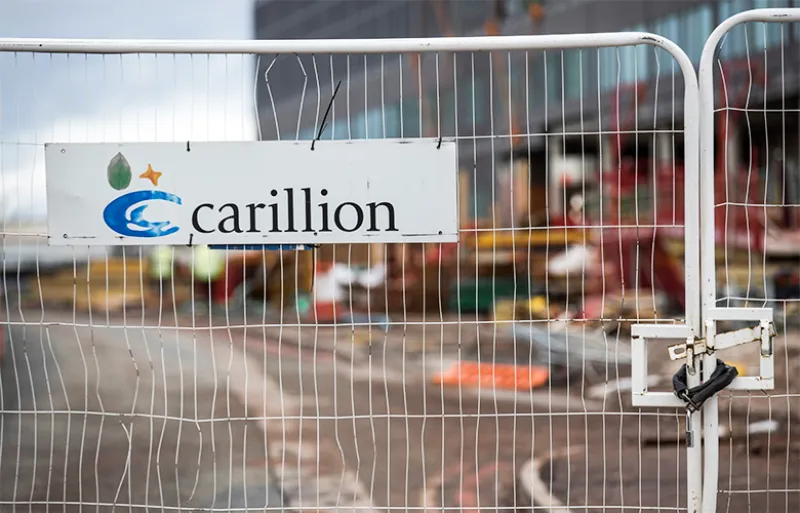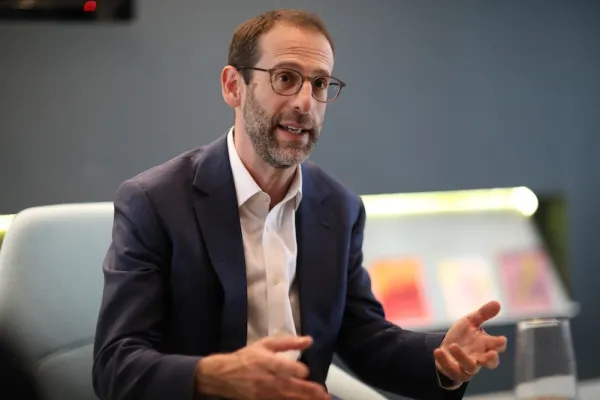Trustees of collapsed U.K. construction group Carillion never asked the government’s pensions regulator to force the company to pay more into its pension scheme — despite harboring concerns about the fund’s deficit for a decade, a government committee heard on Tuesday.
The British government’s Business, Energy and Industrial Strategy and Work and Pensions committees have been jointly investigating events leading up to the company’s collapse earlier this month. The firm’s demise left 28,500 members of the company’s defined benefit pension scheme facing the prospect of a loss of some of their retirement benefits. The total deficit of all of the plans within the DB scheme could be as high as £990 million ($1.4 billion), according to a letter sent to the Work and Pensions Committee on Friday.
However, on Tuesday, Robin Ellison, chair of trustees for Carillion’s pension schemes and the author of the letter, revealed that while the board brought the problems to the attention of the Pensions Regulator as far back as 2008, and again in 2011 and 2013, he had never explicitly asked the Pensions Regulator to invoke its powers to force the company to pay in more.
“We sought their intervention in the way that they thought would be best,” he told the joint committee.
When asked what measures the trustees took to protect pension scheme members, Ellison said while they “fought pretty hard,” he felt the powers of pension trustees were “limited,” noting that they could not “enforce a demand for money.”
Ellison joined the pension’s board of trustees in 2007, later becoming chairman in 2011. He told committee members that despite battling a deficit from the time he had joined the board, the company had continually resisted paying in what trustees believed necessary to plug the hole.
“We didn’t ever really get to an agreement on the difference between what the company thought it could afford and what we thought the company could afford,” he told the joint committee. “The regulator has been involved, pretty much from the beginning. My understanding was that Carillion was considered one of those schemes that they wanted to keep an eye on, pretty much early on.”
[II Deep Dive: “Scammers” Seek to Cash In on Carillion Collapse, Trade Group Warns]
In a response to Ellison’s letter published on Monday, member of Parliament and Work and Pensions Committee chair Frank Field wrote, “It’s clear that Carillion has been trying to wriggle out of its obligations to its pensioners for the last 10 years … Once again, [the Pensions Regulator] has questions to answer. They have been sniffing around Carillion — at the trustees’ behest — since at least 2008, though it is not apparent to what effect.”
Sitting next to Ellison at Tuesday’s testimony was Chris Martin, managing director of Independent Trustees Services, who was also summoned to appear before the joint committee. Martin had been appointed as an adviser to the trustees at the start of January, just two weeks before Carillion collapsed.
He told committee members that the Pensions Regulator had been actively involved in the trustees’ meetings in the lead-up to the company’s collapse, but refused to comment on whether the regulator should have exercised its powers to force the company to pay in more cash.
“They had identified Carillion as a sponsor of a scheme that they would pay close attention to,” he said. “Once the regulator is proactively engaged, it takes decisions, itself, as to whether it thinks its powers are engaged.”
A spokesman for the Pensions Regulator declined to comment specifically on Tuesday’s parliamentary proceedings when contacted by Institutional Investor.
However, the spokesman referred to a previously released statement that said the current regulations “balance the needs of a scheme and its members with the needs of an employer to invest in their ongoing business.”
“The Pensions Regulator does not approve recovery plans — it is for the trustee and employer to agree them,” the spokesman said.







